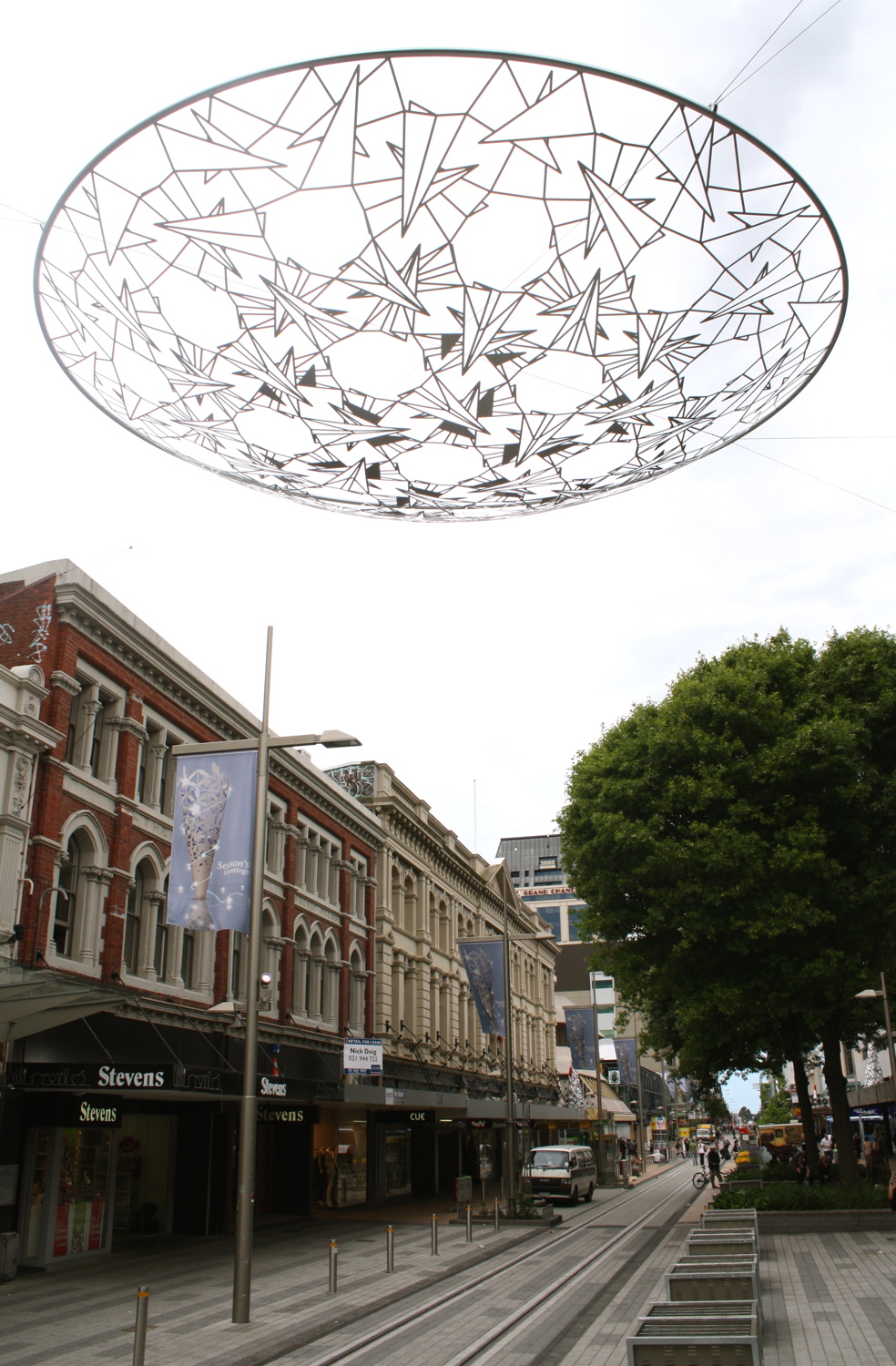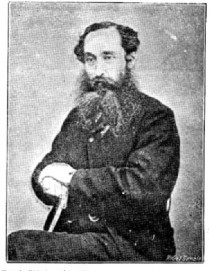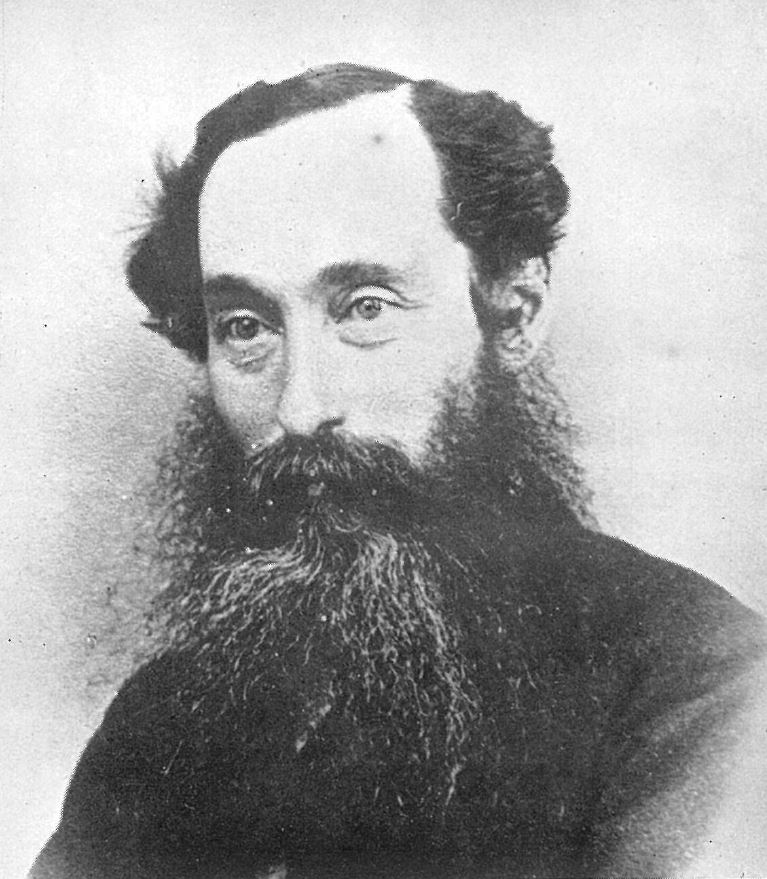|
Heathcote (New Zealand Electorate)
Heathcote was a 19th-century parliamentary electorate in Christchurch, New Zealand. Population centres The electorate was based on the Heathcote Valley suburb. History Heathcote existed from 1861 to 1893. George Williamson Hall resigned in 1862. He was succeeded by William Sefton Moorhouse in the . Moorhouse himself resigned the following year and was succeeded by Alfred Cox in the . John Hall, the younger brother of George and who was later to become the 12th Premier, won the against George Buckley and represented Heathcote until 1872, when he resigned due to health reasons. At the , John Cracroft Wilson was elected unopposed to represent the electorate. James Fisher the represented the electorate over the next two terms, from 1876 to 1881. He was succeeded by lawyer Henry Wynn-Williams, who won the . During the next term, beginning with the , John Coster was the representative, until his death on 17 December 1886. The was won by Frederic Jones. Jones was confirmed in ... [...More Info...] [...Related Items...] OR: [Wikipedia] [Google] [Baidu] |
New Zealand Electorates
An electorate or electoral district ( mi, rohe pōti) is a geographical constituency used for electing a member () to the New Zealand Parliament. The size of electorates is determined such that all electorates have approximately the same population. Before 1996, all MPs were directly chosen for office by the voters of an electorate. In New Zealand's electoral system, 72 of the usually 120 seats in Parliament are filled by electorate members, with the remainder being filled from party lists in order to achieve proportional representation among parties. The 72 electorates are made up from 65 general and seven Māori electorates. The number of electorates increases periodically in line with national population growth; the number was increased from 71 to 72 starting at the 2020 general election. Terminology The Electoral Act 1993 refers to electorates as "electoral districts". Electorates are informally referred to as "seats", but technically the term '' seat'' refers to an electe ... [...More Info...] [...Related Items...] OR: [Wikipedia] [Google] [Baidu] |
Frederic Jones
Frederic Jones (1832 – 8 September 1890) was a New Zealand politician. Originally from England, he settled in the colony in 1863 for health reasons. Early life Jones was the third son of John Humphreys Jones, from the Shropshire region in England. He received his education from the Reverend G. Wharton, vicar of Kinver, and learned the trades of architecture and surveyor. He was employed by the architecture firm Haslam and Butler in London. In January 1863, Jones arrived in Lyttelton with his brother T. D. Jones on the ''Chariot of Fame''. His second brother, John Humphreys, remained in Dalston, London. The main reason for emigration was to improve his health by a change of climate. Jones was for several years employed in the office of the builder Jenkins, and he worked in the office of Messrs W. Montgomery and Co after that. Jenkins, Jones and a Mr Innes started a flax mill in Kaiapoi, but the business failed. The site was later occupied by the Kaiapoi Woollen Manufacturi ... [...More Info...] [...Related Items...] OR: [Wikipedia] [Google] [Baidu] |
Historical Electorates Of New Zealand
History (derived ) is the systematic study and the documentation of the human activity. The time period of event before the invention of writing systems is considered prehistory. "History" is an umbrella term comprising past events as well as the memory, discovery, collection, organization, presentation, and interpretation of these events. Historians seek knowledge of the past using historical sources such as written documents, oral accounts, art and material artifacts, and ecological markers. History is not complete and still has debatable mysteries. History is also an academic discipline which uses narrative to describe, examine, question, and analyze past events, and investigate their patterns of cause and effect. Historians often debate which narrative best explains an event, as well as the significance of different causes and effects. Historians also debate the nature of history as an end in itself, as well as its usefulness to give perspective on the problems of the p ... [...More Info...] [...Related Items...] OR: [Wikipedia] [Google] [Baidu] |
1893 Disestablishments In New Zealand
Events January–March * January 2 – Webb C. Ball introduces railroad chronometers, which become the general railroad timepiece standards in North America. * Mark Twain started writing Puddn'head Wilson. * January 6 – The Washington National Cathedral is chartered by Congress; the charter is signed by President Benjamin Harrison. * January 13 ** The Independent Labour Party of the United Kingdom has its first meeting. ** U.S. Marines from the ''USS Boston'' land in Honolulu, Hawaii, to prevent the queen from abrogating the Bayonet Constitution. * January 15 – The ''Telefon Hírmondó'' service starts with around 60 subscribers, in Budapest. * January 17 – Overthrow of the Kingdom of Hawaii: Lorrin A. Thurston and the Citizen's Committee of Public Safety in Hawaii, with the intervention of the United States Marine Corps, overthrow the government of Queen Liliuokalani. * January 21 ** The Cherry Sisters first perform in Marion, Iowa. ** The Tat ... [...More Info...] [...Related Items...] OR: [Wikipedia] [Google] [Baidu] |
1860 Establishments In New Zealand
Year 186 ( CLXXXVI) was a common year starting on Saturday (link will display the full calendar) of the Julian calendar. At the time, it was known as the Year of the Consulship of Aurelius and Glabrio (or, less frequently, year 939 ''Ab urbe condita''). The denomination 186 for this year has been used since the early medieval period, when the Anno Domini calendar era became the prevalent method in Europe for naming years. Events By place Roman Empire * Peasants in Gaul stage an anti-tax uprising under Maternus. * Roman governor Pertinax escapes an assassination attempt, by British usurpers. New Zealand * The Hatepe volcanic eruption extends Lake Taupō and makes skies red across the world. However, recent radiocarbon dating by R. Sparks has put the date at 233 AD ± 13 (95% confidence). Births * Ma Liang, Chinese official of the Shu Han state (d. 222) Deaths * April 21 – Apollonius the Apologist, Christian martyr * Bian Zhang, Chinese official and gener ... [...More Info...] [...Related Items...] OR: [Wikipedia] [Google] [Baidu] |
The Press
''The Press'' is a daily newspaper published in Christchurch, New Zealand owned by media business Stuff Ltd. First published in 1861, the newspaper is the largest circulating daily in the South Island and publishes Monday to Saturday. One community newspaper—''Northern Outlook''- is also published by ''The Press'' and is free. The newspaper has won the title of New Zealand Newspaper of the Year (in its circulation category) three times: in 2006, 2007 and 2012. It has also won the overall Newspaper of the Year title twice: in 2006 and 2007. History James FitzGerald came to Lyttelton on the ''Charlotte Jane'' in December 1850, and was from January 1851 the first editor of the ''Lyttelton Times'', Canterbury's first newspaper. From 1853, he focussed on politics and withdrew from the ''Lyttelton Times''. After several years in England, he returned to Canterbury concerned about the proposed capital works programme of the provincial government, with his chief concern the pro ... [...More Info...] [...Related Items...] OR: [Wikipedia] [Google] [Baidu] |
1866 New Zealand General Election
The 1866 New Zealand general election was held between 12 February and 6 April to elect 70 MPs to the fourth term of the New Zealand Parliament. In 1867 four Māori electorates were created, initially as a temporary measure for five years. The first Māori elections for these seats were held in 1868, with universal suffrage for Māori males over 21. The first four Māori members of parliament were Tareha Te Moananui (Eastern Maori), Frederick Nene Russell (Northern Maori) and John Patterson (Southern Maori), who all retired in 1870; and Mete Kīngi Paetahi (Western Maori Western Maori was one of New Zealand's four original parliamentary Māori electorates established in 1868, along with Northern Maori, Eastern Maori and Southern Maori. In 1996, with the introduction of MMP, the Maori electorates were updated, ...) who was defeated in 1871. Results a Moorhouse was elected in both the Mount Herbert and Westland electorates. He chose to represent Westland. Notes Ref ... [...More Info...] [...Related Items...] OR: [Wikipedia] [Google] [Baidu] |
National Library Of New Zealand
The National Library of New Zealand ( mi, Te Puna Mātauranga o Aotearoa) is New Zealand's legal deposit library charged with the obligation to "enrich the cultural and economic life of New Zealand and its interchanges with other nations" (''National Library of New Zealand (Te Puna Mātauranga) Act 2003''). Under the Act, the library's duties include collection, preserving and protecting the collections of the National Library, significant history documents, and collaborating with other libraries in New Zealand and abroad. The library supports schools through its Services to Schools business unit, which has curriculum and advisory branches around New Zealand. The Legal Deposit Office is New Zealand's agency for ISBN and ISSN. The library headquarters is close to the Parliament of New Zealand and the Court of Appeal on the corner of Aitken and Molesworth Streets, Wellington. History Origins The National Library of New Zealand was formed in 1965 when the General Assembly Library ... [...More Info...] [...Related Items...] OR: [Wikipedia] [Google] [Baidu] |
1890 New Zealand General Election
The 1890 New Zealand general election was one of New Zealand's most significant. It marked the beginning of party politics in New Zealand with the formation of the Liberal Government, which was to enact major welfare, labour and electoral reforms, including giving the vote to women. It was also the first election in which there was no legal plural voting. Multi-member electorates were re-introduced in the four main centres and the 'country quota' (which gave more weight to rural votes) was increased to 28%. Following the election and the resignation of the previous government headed by Harry Atkinson, John Ballance formed the first Liberal Party ministry, taking office on 24 January 1891. At this stage no formal party organisation existed, but the formation of the Liberal ministry signalled the end of the system by which governments were made up of a loose and unstable coalition of independent MPs and the beginning of the 'party system'. Electoral redistribution In December 18 ... [...More Info...] [...Related Items...] OR: [Wikipedia] [Google] [Baidu] |
The Evening Post (New Zealand)
''The Evening Post'' (8 February 1865 – 6 July 2002) was an afternoon metropolitan daily newspaper based in Wellington, New Zealand. It was founded in 1865 by Dublin-born printer, newspaper manager and leader-writer Henry Blundell, who brought his large family to New Zealand in 1863. With his partner from what proved to be a false-start at Havelock, David Curle, who left the partnership that July, Henry and his three sons printed with a hand-operated press and distributed Wellington's first daily newspaper, ''The Evening Post'', on 8 February 1865. Operating from 1894 as Blundell Bros Limited, his sons and their descendants continued the very successful business which dominated its circulation area. While ''The Evening Post'' was remarkable in not suffering the rapid circulation decline of evening newspapers elsewhere it was decided in 1972 to merge ownership with that of the never-as-successful politically conservative morning paper, '' The Dominion'', which belonged to ... [...More Info...] [...Related Items...] OR: [Wikipedia] [Google] [Baidu] |
1860–1861 New Zealand General Election
The 1860–1861 New Zealand general election was held between 12 December 1860 and 28 March 1861 to elect 53 MPs to the third session of the New Zealand Parliament The New Zealand Parliament ( mi, Pāremata Aotearoa) is the unicameral legislature of New Zealand, consisting of the King of New Zealand (King-in-Parliament) and the New Zealand House of Representatives. The King is usually represented by hi .... 13,196 electors were registered. 1860 was the year gold miners who held a Miner’s Right continuously for at least three months were able to vote without having to own, lease or rent property. Results Notes References * {{DEFAULTSORT:1860-1861 New Zealand general election ... [...More Info...] [...Related Items...] OR: [Wikipedia] [Google] [Baidu] |
Heaton Rhodes
Sir Robert Heaton Rhodes (27 February 1861 – 30 July 1956), usually known as Sir Heaton Rhodes, was a New Zealand politician and lawyer. Life Rhodes was born in Purau on Banks Peninsula, the son of sheep farmer and politician Robert Heaton Rhodes. He went to England to attend Hereford Cathedral School and then studied at Brasenose College, Oxford, from which he graduated in 1884. He was called to the bar by the Inner Temple in 1887. He then returned to New Zealand, joined the New Zealand Mounted Rifles Brigade, and served in the Second Boer War in 1902 with the 8th New Zealand Contingent. He later went on to command the 1st Mounted Rifles in the New Zealand Territorial Force. After retirement he was Honorary Colonel of the 1st Mounted Rifles. Rhodes represented the Ellesmere electorate in the House of Representatives from 1899 to 1925, during which time he joined the Reform Party. He retired in 1925 and was appointed to the Legislative Council, in which he ... [...More Info...] [...Related Items...] OR: [Wikipedia] [Google] [Baidu] |
.jpg)







